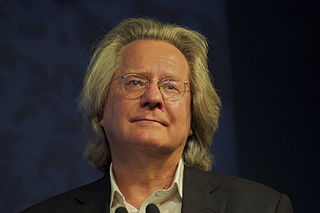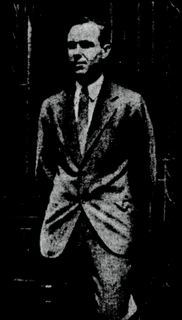A Quote by A.C. Grayling
Humanism is the philosophy that you should be a good guest at the dinner table of life.
Quote Topics
Related Quotes
In contemporary society secular humanism has been singled out by critics and proponents alike as a position sharply distinguishable from any religious formulation. Religious fundamentalists in the United States have waged a campaign against secular humanism, claiming that it is a rival "religion" and seeking to root it out from American public life. Secular humanism is avowedly non-religious. It is a eupraxsophy (good practical wisdom), which draws its basic principles and ethical values from science, ethics, and philosophy.
Americans are curious about the texture of everyday life in the Middle East because they rarely get to see it. I wanted readers to feel like they were sitting around the dinner table with me and my friends, hearing what average people really say and really think, [where] the dinner table is the best place to find out.
When I first got on the internet as a tween, I wasn't comfortable showing up in social spaces. I didn't have a loud voice. As a function of my youth and gender, I wasn't given a voice at the dinner table, and nor maybe should I have been. But I thought I wanted one, and I was able to have it online. I wasn't a great talker, but I found these other skills. And when this stuff is described as "not real writing" or "bad for my brain" or whatever, it just seems like it's from people who wanted to keep their place at the dinner table.
Humanism is an overemphasis on human worth and ability, leading man to glorify himself instead of God...While its historical forms may vary, humanism inevitably leads people away from God and spiritual concerns. It promotes the false idea that man is good and that he is superior to God. Secular Humanism of the twentieth century altogether rejects belief in God and worships man as God. The pride of humanism will not go unpunished.
Working- and Middle-class families sat down at the dinner table every night - the shared meal was the touchstone of good manners. Indeed, that dinner table was the one time when we were all together, every day: parents, grandparents, children, siblings. Rudeness between siblings, or a failure to observe the etiquette of passing dishes to one another, accompanied by "please" and "thank you," was the training ground of behavior, the place where manners began.
An Albanian’s house is the dwelling of God and the guest.’ Of God and the guest, you see. So before it is the house of its master, it is the house of one’s guest. The guest, in an Albanian’s life, represents the supreme ethical category, more important than blood relations. One may pardon the man who spills the blood of one’s father or of one’s son, but never the blood of a guest.
Philosophy - reduced, as we have seen, to philosophical discourse - develops from this point on in a different atmosphere and environment from that of ancient philosophy. In modern university philosophy, philosophy is obviously no longer a way of life, or a form of life - unless it be the form of life of a professor of philosophy.







































